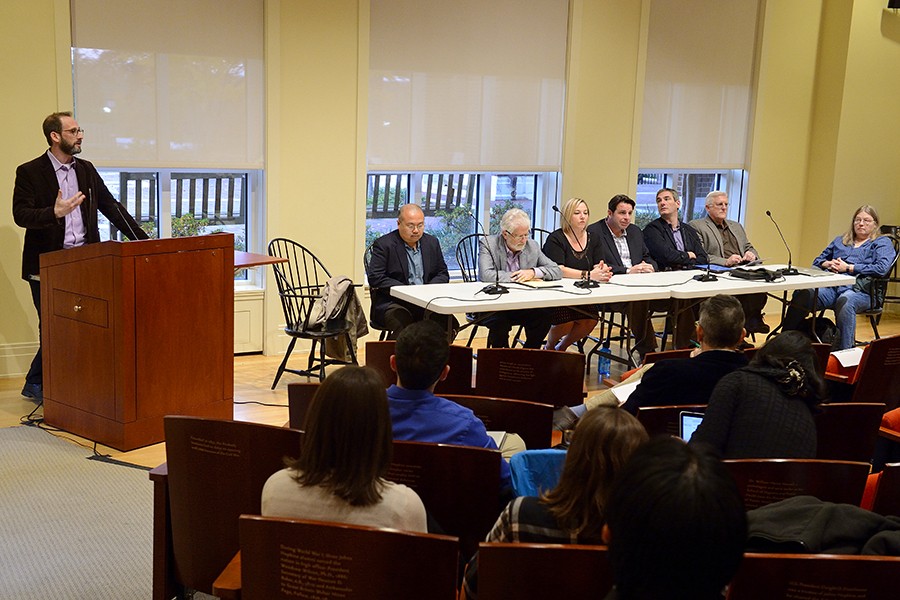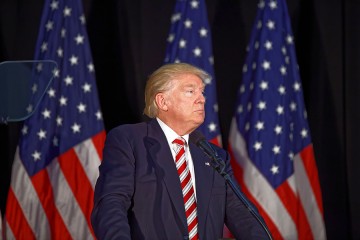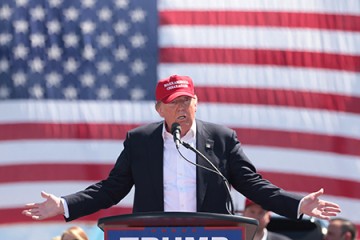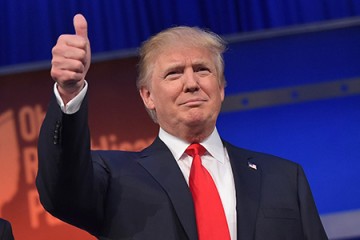For Courtland Robinson, the 2016 election was "absolutely and critically" about American identity.
"The myth that we have is that we were founded by European migrants seeking religious freedom," the associate professor in the Johns Hopkins University Bloomberg School of Public Health. "We have to understand that this is a population that was founded not just by voluntary migration of predominantly whites from Europe, but by the forced migration of millions of Africans via the Middle Passage, and the secondary forced migration into the Deep South and the dislocation of Native Americans. This country was founded on principles of equality under law, and freedom, and democracy, but it was founded also on the extraction of Native American land and African labor. I think we're returning to some of these fundamental questions of who gets enfranchisement."
For Hilary Bok, an associate professor in JHU's Department of Philosophy, one of the most distressing parts of the campaign was encountering people who were not interested in understanding the candidates' policies or participating responsibly.
"Democracies do not function when people are not willing to take their democratic responsibilities very seriously," Bok said. "They were saying 'Things are screwed up. Let's just blow it up.' And I hated hearing that, because the people saying that must not have spent a lot of time in parts of the world where they don't actually have democracies."
Robinson and Bok were among the eight Johns Hopkins University faculty experts who gathered Wednesday evening in Mason Hall on the university's Homewood campus to discuss the election and its aftermath. The panel, moderated by political scientist Adam Sheingate, featured social scientists, political scientists, and health policy experts who sought an understanding of the factors that led to the surprise victory of Donald Trump and the ramifications of his proposed policies and appointments.
Bradley Herring, an associate professor in the Department of Health Policy and Management at the Bloomberg School, discussed the future of health care under President-elect Trump's proposed reforms.
"The big thing now is that the Republicans completely have the power to repeal the Affordable Care Act," Herring said. "Come January, the Affordable Care Act could just be out and out repealed. But I'd put my money against that, considering the Republicans realize that they can't just repeal it—they have to replace it with something." He suggested that the Republican party is not a monolith, and that members of the same party do not necessarily conform to the same theories of health care reform.
Nicholas Jabko, a professor in the Department of Political Science, traced nationalist movements around the world that contextualize Trump's rise to power.
"Trump is not an outlier. In many ways, what is happening in the U.S. has happened or is happening these days in other parts of the world and in other events in industrialized economies," Jabko said. "In a world that has chosen to globalize, to open its borders, to basically go full-steam ahead to neoliberal policies, you get increased inequalities, you get people who get the bigger part of the pie than others, you get a stagnation of real wages in large parts of the working class, and these people then manifest their anger at the polls and at the voting booths when they get the opportunity to do so."
The anger of the white working class, whose votes gave Trump electoral wins in the South and Midwest, was explored at length by panelists.
"These are the people whose parents and grandparents had industrial jobs that paid decent amounts of money in the factories that have now gone overseas or are more efficient with computer chips and automation. These are people who, when asked about how they're doing, compare themselves with a generation that did better," said Andrew Cherlin, who teaches in the Department of Sociology. "I think that the response of these white working class people, although it had sexist and racist overtones, was primarily an economic response. That is to say it was driven by a sense that things aren't as good as they used to be."
JHU President Ronald J. Daniels, who attended the panel as a guest, expressed concern that Trump's proposed policies that affect trade would still not return jobs from overseas to the white working class, and that "fundamentally, we are going to do nothing materially to impact the deep pain that this community is in." Sociologist Stefanie DeLuca added that while studies into the white working class are more important now than ever, it is also critical to continue examining issues of deep poverty in the inner cities.
Sarah Parkinson, whose research into organizational behavior and social change has led her to work in and adjacent to conflict zones in north Africa and the Middle East, took direct aim at Trump's actions since winning the election—including his decision to appoint his children to his transition team, his refusal to divorce business interests from political interests, and, Parkinson said, his narcissism. These qualities, she said, are hallmarks of an authoritarian.
"What do we learn from authoritarian states and authoritarianism?" Parkinson asked. "The first is listen to the authoritarian. If the authoritarian appoints neo-Nazis to the major positions, that's not a time to say 'Wait and see what happens.' We know what happens. Plenty of political scientists can tell you this from all different areas. The second is don't count on or don't assume that checks and balances will work—demand them to.
"Resist the urge to make everything about the president. This is how authoritarians thrive, this is how cults of personality are built. Part of this is taking a good hard look at ourselves and asking why so much of the population didn't vote. But part of this is also how we frame the stories we tell about ourselves. If we make all of those stories about Trump, that means that we're not actually doing the introspective work and the activist work that needs to be done."
Parkinson said Trump's election emboldens oligarchs, authoritarians, and terrorist regimes around the world.
"It's about to become a much rougher time for people other than [Americans] to be a dissident," she said.
Sociologist Ho-Fung Hung agreed:"It's going to be winter for dissidents around the world, theres no doubt about that."
Tagged election 2016, donald trump












